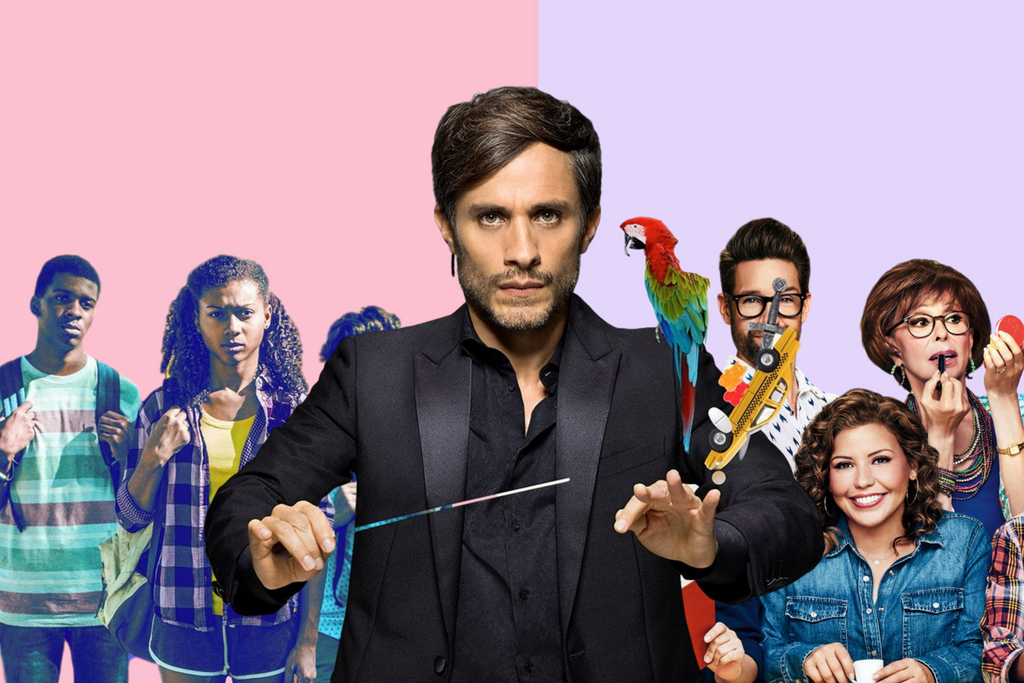Let’s Talk About The ‘Atlanta’ Episode That Will Go Down As 2018’s Best Piece Of TV
Thought 'This Is America' was genius? Watch 'Teddy Perkins'.
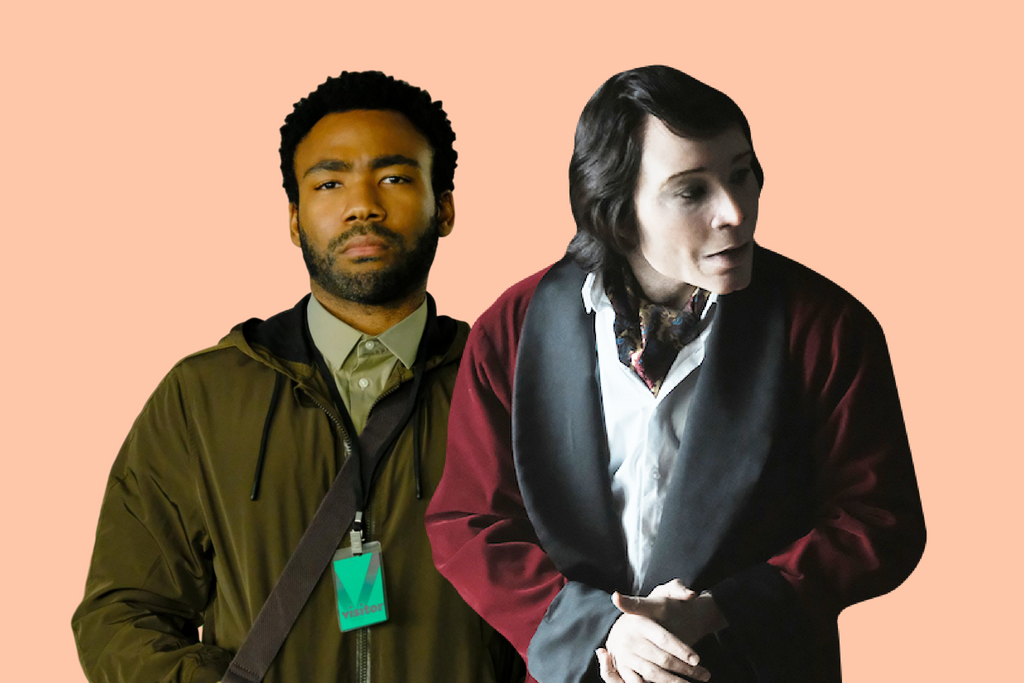
This article contains minor spoilers for season 2 of ‘Atlanta’.
—
Last week, Donald Glover dropped his mindblowing single ‘This Is America’ (you may have heard of it) as his alter-ego Childish Gambino while dominating Saturday Night Live as guest host. Next week is the premiere of Solo: A Star Wars Story, featuring Glover’s much-anticipated interpretation of beloved hero Lando Calrissian. As if all that wasn’t enough, the pitch-perfect second-season finale of Atlanta, Glover’s award-winning TV series, aired a few nights ago.
At this point it’s kind of hard to overstate how much he’s killing it across many art forms. The word ‘genius’ has been bandied about.
Absorbingly suspenseful as that finale was, it was such a subdued and quiet 30 minutes of television it may have gotten a bit lost in the uproar over ‘This Is America’. But now that the second season is in the books, I’m convinced that Atlanta is the project that demonstrates Glover’s incredible talent most of all. As gifted a musician as Glover is, and as much as he’s no doubt on his way to blockbuster stardom, his true genius is as a TV writer and showrunner. With season 2, Atlanta has become one of the most interesting things on screens small or big right now.
It’s even more a measure of Glover’s and Atlanta’s brilliance that the best and most memorable episode of this season hardly features its lead characters — Glover’s Earnest Marks and Brian Tyree Henry’s Alfred “Paper Boi” Miles — and has little to do with its overarching premise about two cousins trying to make it in the rap game. Instead, Episode 6: Teddy Perkins is a near-total departure from the Atlanta we know and love, a self-contained psychological horror flick. It’s also the best piece of television that’s aired this year.
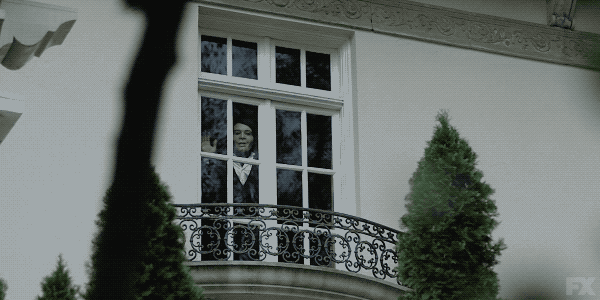
In this extended 41-minute episode (which premiered in the US in a special commercial-free broadcast), co-star Lakeith Stanfield’s Darius Epps scores a free piano from an online message board. As soon as you see him drive up to a mansion in the sticks of rural Georgia to pick it up you know things aren’t going to end well.
But from then on, nothing else about the episode is predictable, as Darius is pulled into the bizarre goings-on inside the house, and the show goes full Southern Gothic on us. Once this creepy mood is established, writer Glover and director Hiro Murai (one of Glover’s chief collaborators, who also directed ‘This Is America’) masterfully ratchet up the suspense and dread, as things keep getting weirder and more macabre. It’s fun to list the episode’s influences and references: Stephen King and Stanley Kubrick are obvious ones. David Lynch. The Twilight Zone. Can’t forget Alfred Hitchcock. There’s a lot going on here.
The title character is clearly a lurid take on Michael Jackson — his ghastly white masklike face (brought on by a horrific skin condition), his deranged seclusion, his tragic history of child abuse. When I read later that Glover himself, uncredited, plays this unforgettable character in whiteface, I almost fell out of my chair. It’s a jaw-dropping performance and even considering ‘This Is America’ and all the rest, this incognito performance will remain a career highlight.
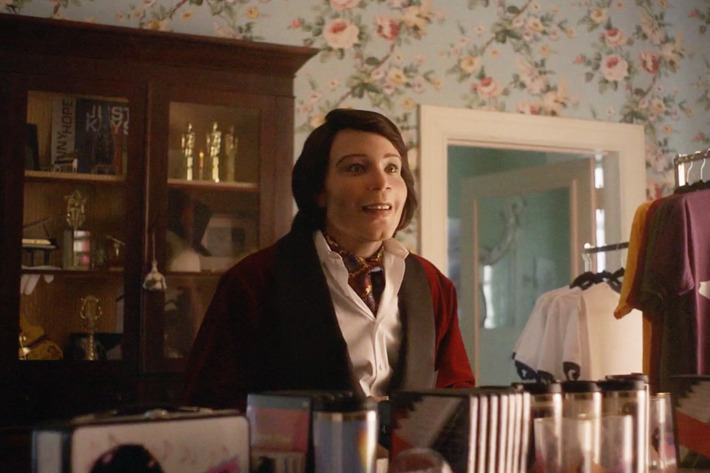
Aside from the scary bits, the episode is remarkable on other levels. Stanfield’s performance as the eccentric Darius has always been one of the best things about the show, but he’s mostly been relegated to comic relief. Here he gets to take the lead and explore previously unseen depths of drama and emotion. Glover’s frighteningly inhuman make-up is an eerie metaphor for the destructive effects of American racism. The themes of child abuse and toxic masculinity add even more weight.
Teddy Perkins may have been intended as a standalone, but its dark atmosphere spills out into the rest of Robbin’ Season and messes with our minds. When we next see Darius, in the follow-up episode, Champagne Papi, he’s chilling by the pool at Drake’s mansion (yes, that Drake) during a debauched New Year’s Eve party and being his usual trippy philosophical self, rambling about simulated reality. But we can’t help but wonder — didn’t he just go through some crazy shit? Has it fucked with him? Or was it even part of the same timeline? The episode makes no mention of what came before.
The fact that Champagne Papi takes place in another mansion (if not another timeline) only adds to our unease — ensuring that we jump at every shadow as Van wanders around the absurdly palatial confines trying to find Drake, inevitably getting lost. The sense of horror is subtle this time, but it’s there.
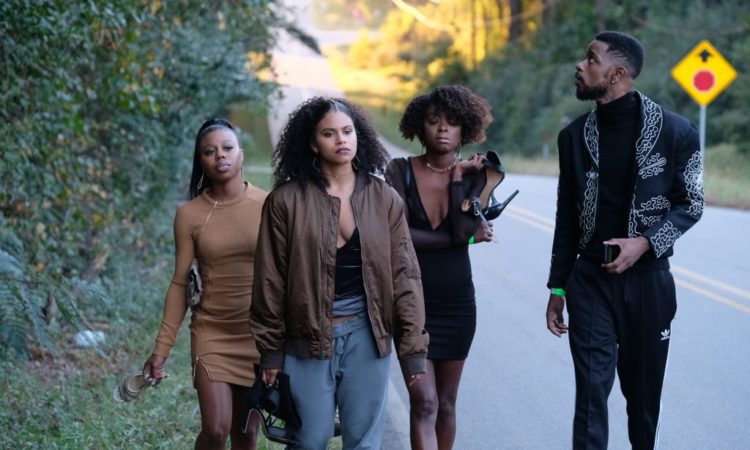
Even the more “normal” episodes have an experimental feel and a dreamlike quality unusual for television. Barber Shop, also featuring Al, finds him on a wild ride all over town with his barber, a deeply distracted and shambolic small-time hustler. The mounting futility as Al’s day spirals out of control reaches a level of deadpan absurdism that echoes Jim Jarmusch. (And is there anyone better than Henry at portraying slow-burn frustration?)
An early episode flips a tense standoff with the police into a surreal encounter with an alligator. The season’s emotional peak, a dramatic confrontation between Earn and Al over the future of their partnership, takes place with them dressed in pyjamas, smoking a blunt in a white frat house surrounded by guns, Confederate flags and naked hazing victims. The finale, low-key as it is by comparison to the rest of the season, centres around a handgun made of gold, a sly and funny salute to James Bond that belies the ensuing drama.
Rewinding a bit, one of the key episodes of the season is the fourth one, the unsettling Helen. Earn and Van drive to a village in northern Georgia, geographically and culturally far from Atlanta, for a very weird and very white celebration of something called Fasnacht, a traditional German festival. Earn seems as puzzled as we are by Van’s suddenly revealed German heritage. Again, transforming identities is a running theme this season.
Significantly, at the start of the episode, Van almost hits a wild boar with her car — an explicit tribute to Get Out, which became a cultural sensation during Atlanta’s long offseason. But in retrospect, post-Teddy Perkins, it’s clear the influence of Get Out inspired Glover and company to shift gears on the whole season of storytelling and to experiment more with horror and the supernatural.
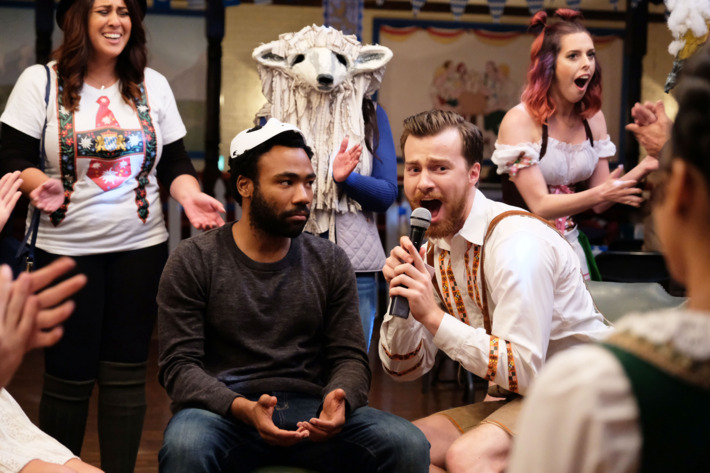
The midseason episodes are so good and compelling you forget to wonder why we barely see Earn, or why the show keeps wandering away from the satire of the music industry that brought it acclaim and accolades. Glover and company have built so much trust in us over a short period of time that we just go with it.
And Atlanta hasn’t given up its detailed deconstruction of inner-city life and the music scene of the Dirty South, nor its spot-on takes on American racism. If anything the more expansive palette sheds more light on those things.
Just as in Get Out, the horror, absurdism and dark comedy are a reflection of the unease of America today, with its entrenched bigotry and growing inequality. No one in Atlanta has much money or a stable job or living situation, the indignity of racism confronts the characters with stinging regularity and the threat of crime and police violence is constant. Atlanta translates this real-life social decay into magical realism that’s alternately hilarious and nightmarish. (These aspects of the series are even more poignant in the wake of ‘This Is America’.)
It’s not like all this is came from nowhere this season. Think of the freaky highlights of the first season — the demented hoverboarding Instagrammer, the invisible car, Justin Bieber depicted as a black man. Even before the series premiered in 2016, Glover said, “I just always wanted to make Twin Peaks with rappers.” But he’s been fearless in taking this loopiness to new heights.
Atlanta was already one of the best series in years, with easily the most appealing and relatable characters on TV. Glover could have let up on the accelerator and let the second season settle into a bit of a formula, and everyone would have been fine with it. It’s a wonderful formula, and Lord knows he’s a busy man. It’s a gift, the way he and his team keep pushing the boundaries and coming up with this kind of genius.
And I’m definitely there for the timeline in which Childish Gambino is the next David Lynch.
—
Jim Poe is a writer, DJ, and editor based in Sydney. He tweets from @fivegrand1.
—
‘Atlanta’ is streaming now on SBS On Demand.
